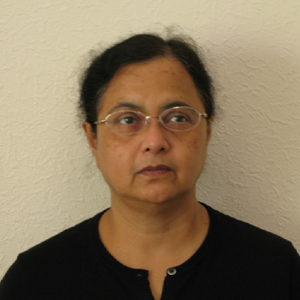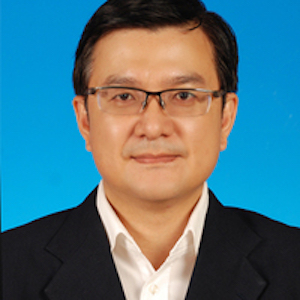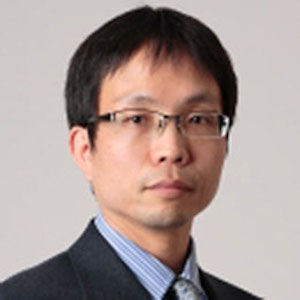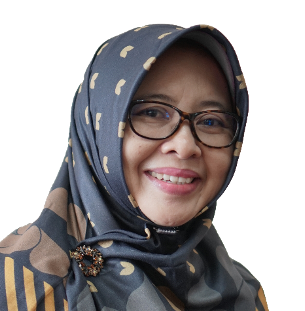Keynote Speakers

Dr. Basabi Chakrabort
Faculty of Software and Information Science
Iwate Prefectural University, Japan
Basabi Chakraborty received B.Tech, M.Tech and Ph. D degrees in RadioPhysics and Electronics from Calcutta University, India and worked in Indian Statistical Institute, Calcutta, India until 1990. From 1991 to 1993 she worked as a part time researcher in Advanced Intelligent Communication Systems Laboratory in Sendai, Japan. She received another Ph. D in Information Science from Tohoku University, Sendai in 1996. From 1996 to 1998, she worked as a postdoctoral research fellow in Research Institute of Electrical Communication, Tohoku University, Japan. In 1998 she joined as a faculty in Software and Information Science department of Iwate Prefectural University, Iwate, Japan.
Her main research interests are in the area of Pattern Recognition, Image Processing, Soft Computing Techniques, Biometrics, Data Mining and Online Social Media Mining. She is a senior member of IEEE, member of ACM, Japanese Neural Network Society (JNNS), Japanese Society of Artificial Intelligence (JSAI), Executive committee member of ISAJ (Indian Scientists Association in Japan), IEEE JC WIE (Women in Engineering).
Topic : Title: Efficient Similarity Measures and Representation Techniques for Time Series Data MiningAbstract: Analysis of time series data is needed in many areas of practical life ranging from medical and health related applications to biometric authentication, process industry, financial or economic predictions. The categorization of multivariate time series (MTS) data poses problem due to its dynamical nature and conventional machine learning algorithms for static data become unsuitable for time series classification or clustering. Similarity measures are essential for classification or clustering of MTS data. Various similarity measures have been developed so far, none of them work the best for all real world applications. The most popular one being dynamic time warping (DTW) though it has a high computational cost. In this lecture, I would like to present our proposal of some new similarity measures based on multidimensional delay vector representation of time series and several modifications of DTW for increased classification accuracy with lesser computational burden. The efficiency of the proposed similarity measures in comparison with other popular measures will be discussed by simulation experiments over benchmark data sets. I would also like to discuss applications of the new measures in different real life problems of pattern recognition.

Dr. Chu Kiong Loo
Faculty of Computer Science and Information Technology
University of Malaya, Malaysia
Dr. Loo Chu Kiong formerly served as the Deputy Director of the University of Malaya’s Centre of Innovation and Commercialization (UMCIC). His research interests focus on Soft Computing (Soft- computing, Quantum Inspired SC, Brain-like Intelligent Systems, Affective Computing, Humanoid, Intelligent robot). He obtained his doctoral degree in Computer Science from the Universiti Sains Malaysia, and his bachelor’s degree in Engineering from the University of Malaya.
His current research projects focus on healthcare area where artificial intelligence can be applied to help medical practitioner to do manage patient in more sophisticated and efficient.
Topic : Continual Learning With Neural Networks: Short Overview and ChallengesAbstract: Humans and animals have the ability to continually acquire, fine-tune, and transfer knowledge and skills throughout their lifespan. This ability, referred to as lifelong learning, is mediated by a rich set of neurocognitive mechanisms that together contribute to the development and specialization of our sensorimotor skills as well as to long-term memory consolidation and retrieval. Consequently, continual learning capabilities are crucial for computational learning systems and autonomous robots interacting in the real world and processing continuous streams of information. However, continual lifelong learning remains a long-standing challenge for machine learning and neural network models since the continual acquisition of incrementally available information from non-stationary data distributions generally leads to catastrophic forgetting or interference. This limitation represents a major drawback for state-of-the art conventional neural network models that typically learn representations from stationary batches of training data, thus without accounting for situations in which information becomes incrementally available over time. This talk will encompass several aspects of research and development of self-organizing incremental neural networks for neurorobotics and healthcare applications.

Dr. Marco Anisetti
Università degli Studi di Milano, Italy.
Bio:Marco Anisetti is an Associate Professor at the Università degli Studi di Milano, Italy. He received the Ph.D degree in Computer Science from the Università degli Studi di Milano in 2009. He is the winner of the GIRPR award for the best PhD thesis in 2010 and the winner of Chester Sall Award from IEEE Consumer Electronics Society in 2009.
His research interests are in the area of Computational Intelligence and its application to the design and evaluation of complex systems and services.
More in details, he has been investigating innovative solutions in the areas of Cloud and Web Service security assurance evaluation and software/service certification where Computational Intelligence provides new notions of ordering and matching of security properties. In this area, he defined a new scheme for continuous and incremental Cloud/Web service security certification, based on distributed assurance evaluation architecture that percolated in his Moon Cloud spin-off.
He is currently investigating the application of Big Data technologies for i) the computation of security assurance metrics including behavioral-based analytics, ii) design of security and privacy-aware health- related applications, iii) compute trustworthiness and assurance metrics in Edge and IoT and for AI models. In addition, he investigates/has investigated the adoption of advanced Computational Intelligence approaches such as fuzzy and rough set for the design of: i) low-level functionalities like mobile geolocation and image enhancement, ii) high-level applications in the areas of Humanized Computing. In this area, he designed an innovative geolocation approach for mobile devices based on the received signal strength, innovative missing color prediction approach for the image acquisition pipeline.
He participated in more than 10 EU projects including FP7 ASSET4SOA and FP7 CUMULUS, H2020 EVOTION, H2020 CONCORDIA, H2020 IMPETUS to name but a few. The results of research activities have been published in more than 100 papers in international conference/workshop proceedings, journals, and chapters in books.
He is a co-inventor of the European Patent titled "Method, System, Network and Computer Program Product for Positioning in a Mobile Communications Network".
Topic : Big Data GovernanceAbstract: The conflict between the need of protecting and sharing data is hampering the spread of big data applications. New security and privacy assurance are required to protect data owners, while data access and sharing are becoming more and more fundamental to implement next generation big data solutions. Maintaining data governance in this context is becoming very challenging. Access control systems assume a central role for balancing the need of data protection and sharing. However, given the software and technological complexity of big data ecosystems, existing solutions are not suitable because they are neither general nor scalable, and do not support a dynamic and collaborative environment. In addition, following GDPR regulations the purposes of processing should be considered as well while granting data processing rights and this level of control is hard to obtain in big data ecosystem. Assurance can play a central role for providing governance in such complex scenario. This speech presents an assurance-based, Big Data Governance solution grounded on access control system that enforces access to data in a distributed, multi-party big data environment. The proposed methodology is based on data annotations and secure data transformations performed primarily at ingestion time but also within analytics pipeline. To show the feasibility, an Apache-based big data engine architecture is proposed with the scope to address the principal peculiarity of the methodology.

Dr. Masanori Sugimoto
Graduate School of Information Science and Technology
Hokkaido University, Japan
Masanori Sugimoto received B.Eng. and M.Eng. degrees from Department of Aeronautics and Astronautics, and Dr.Eng. degree from Interdisciplinary Course on Advanced Science and Technology, University of Tokyo, Japan, in 1990, 1992, and 1995, respectively.
In 1995, he joined Research and Department Development, National Center for Science Information Systems (currently National Institute of Informatics), Tokyo, Japan. He bacame an associate professor at Information Technology Center, University of Tokyo in August 1999. In 2002, he became an associate professor at Department of Frontier Informatics, Graduate School of Frontier Sciences, University of Tokyo. Then, he was transferred to Department of Electrical Engineering and Information Systems , Graduate School of Engineering, University of Tokyo in 2008.
Currently, he is a professor at Department of Computer Science and Information Technology, Graduate School of Information Science and Technology, Hokkaido University.
Topic : Indoor Positioning for SmartphoneAbstract: Global Navigation Satellite System (GNSS), such as GPS is the standard technology for outdoor positioning. However, there is no standard technology for indoor positioning at the moment. Because of the penetration of smartphones into our society, indoor positioning becomes critical a research issue. In this talk I will show an overview of indoor positioning technologies using smartphones. Then I will introduce some of the projects in our team. Finally, challenges and opportunities related to issues on indoor positioning using smartphones are discussed.

Dr. Sri Suning Kusumawardani
Department of Electrical and Information Engineering,
Faculty of Engineering
Universitas Gadjah Mada (UGM), Indonesia
Sri Suning Kusumawardani, is an associate professor in Department of Electrical and Information Engineering, Faculty of Engineering, Universitas Gadjah Mada (UGM), Yogyakarta, Indonesia. She earned Bachelor degree (ST), Master degree (MT), and Doctoral degree (Dr.) in Electrical and Information Engineering from UGM. In 2009 she worked as doctoral research fellow in Faculty of Engineering Education, Utah State University, USA. From 2012 to 2013, she also worked as doctoral research fellow (Erasmus Mundus Research Program) in Universitat Polytecnica de Catalunya, Barcelona, Catalonia, Spain.
Currently, she holds the position as the Deputy Director of the UGM’s Centre for Innovation and Academic Studies (PIKA). Her research fields are related to Educational Data Mining (EDM), E-Learning/ MOOCs (Semantic Technology/Ontology, Predictive Analysis and Learning Analytics, Machine Learning and Artificial Intelligence). The UGM’s Learning Management System: eLOK (https://elok.ugm.ac.id) is one of the products of the research.
Her current research projects focus on MOOCs and Micro Credentials, where artificial intelligence and machine learning can be applied to support students/learners to increase the motivation and the learning performances.
Topic : Predictive Modeling in Learning Analytics for Imbalanced Dataset: A Case Study of Digital Transformation CourseAbstract: Learning Analytics (LA) and the Massive Open Online Courses (MOOCs) are two of the most relevant emerging issues in educational technology and can be collaborated well. MOOCs provide large amounts of data, while LA can be used to analyze the data. LA can be used for various purposes, and one of them is the prediction of academic performance. Many stakeholders can get benefits from it. This study aims to predict more than a thousand students’ performance in a MOOCs course named Digital Transformation for an early detection system of at-risk students using the learning management system (LMS) log data. Several predictive models were used to classify whether a student will be passed or failed in that course. Moreover, some regression models were also used to predict the student’s score as well as to classify the class based on the predicted value. As a result, the linear regression model can predict whether a student will be passed or failed. Furthermore, from the linear model, we also provided a model interpretation from its weights to identify the learning factors that affected student performance.